7 Healthy Things I Eat For Menopause (As A Nutritionist)
- Emma Lisa

- Mar 18, 2023
- 14 min read
Updated: Oct 29, 2025
During menopause, your daily habits can have a huge impact on the severity of your peri-menopause or menopausal symptoms and experience. As a 50+ yr old mum of five who is personally in the thick of it, I can confidently say, taking care of yourself is a must in menopause. That's why I've written this menopause-friendly diet series so that you can try wholefood-based recipes and adopt new habits that can quite literally change your life! Ready? Grab yourself a green tea and let's do this together.
🏠︎ BACK TO RECIPES » JUMP TO LIST ↓ MENOPAUSE DIET » HORMONE SUPPORT »

I'm not going to lie, menopause really changes everything, from how you your metabolism work, energy levels, and emotional tolerance to your your sleep, skin, and of course, your waistline. As a Nutritionist (and a 50+ woman going through this journey myself), I know firsthand how food can either make your symptoms worse or become your daily medicine. That’s why I created this food list of 7 hormone-balancing foods I eat every week. They’re not fancy, restrictive, or expensive, but they are deeply nourishing, simple, and help me feel like myself again. And they'll help you too!
Why You’ll Love This List
Inside this post, you’ll find:
simple, everyday foods you can grab at any supermarket
nutrient-dense choices that soothe symptoms and help balance hormones
backed by research and nutritionist-approved that you can trust
easy swaps and meal ideas you’ll actually enjoy eating
By the end, you’ll know exactly which foods to keep in your kitchen to support your hormones, ease common menopause symptoms, and help you feel like yourself again.
Why Food Matters During Menopause
Menopause is a natural life stage that usually occurs between the ages of 45 and 55, marking the end of your menstrual cycle. While it’s a normal transition for women, the hormonal shifts can bring on challenging symptoms. Think hot flashes, night sweats, stubborn weight gain and crazy cravings. It doesn't just end there though, sleep is often adversely affected with night-time anxiety and overthinking, chronic low energy, mood swings, brain fog, not to mention to that the added risk of bone and heart health issues. It's a damn lot!
The good news? While nutrition won’t “cure” your menopause, the right foods can and do make a big difference. A balanced, menopause friendly diet helps to regulate hormones, ease the discomfort of symptoms, and improve your day-to-day wellbeing so you can move through this season of life with more energy, confidence, and calm.
RELATED:
📖 Want to take the guesswork out of balancing your hormones? I’ve built a done-for-you 7-day Must-Have Menopause Meals menu where you’ll get more juicy menopause secrets, recipes and a shopping list delivered straight to your inbox for just $7. As a bonus, when you grab yours, you'll also get a 15% exclusive discount to grab my full The Midlife Glow Guide so you’ll never run out of menopause-friendly meals to eat. Want it? Sign up for the 7-day Must-Have Menopause Meals here.
You Also Might Like
7 Healthy Things I Eat For Menopause
Foods To Support Hormone Balance
I am not going to delve into what menopause is, because let's be honest, if you're reading this, you already know and are here. Instead, I want provide you with some of the best all natural remedies for menopause from a Nutritionist's perspective, and also from a busy mum of five who is also going through "the change" herself. So, whether you choose to manage menopause with or without HRT and medication, the following menopause friendly foods could make your experience a lot more manageable.
The Menopause Friendly Diet
Foods That Nourish & Balance Hormones
As I mentioned, certain foods can help steady your hormones, ease uncomfortable symptoms like hot flashes and fatigue, and support long-term health for your bones, heart, and metabolism. The best part? These foods aren’t exotic superfoods, you’ll find them in any grocery shop or the markets. Grab your notepad and let me share the seven nutrient-rich, menopause-friendly foods that I personally rely on (and recommend as a Nutritionist).
Adaptogen Herbs & Spices
WHAT I EAT: First up, and my favourite menopause-must haves. Herbs and many spices are an absolute secret weapon in supporting the body during menopause. Adaptogen herbs contain many plant-based compounds used in traditional medicine, and are believed to heal the body when under chronic stress. Using these herbs can help ease or minimise menopausal symptoms, and they also work well for anxiety, depression, ADHD and supporting your body's stress response systems. Adaptogen herbs and spices that are helpful include:
✔ ashwagandha lower in lactose
✔ goji berries improve focus and stave off mental fatigue
✔ liquorice root balance cortisol levels and support adrenal function during stress.
HOW I EAT IT: For instance, I use 1 tsp of ground, organic maca root in my morning coffee for menopause support and libido. I also, often sprinkle cinnamon over my meals for the metabolic boost and to support my blood sugar levels (as I'm diabetic). You can help curb your appetite with a little ginger and cayenne pepper being consumed prior to eating, and use other herbs like chamomile and lavender to calm the nervous system by enjoying them in lattes, tonics or teas before bed or in stressful moments.
Berries (All Types)
WHAT I EAT: Berries are low calorie, and are always on my daily menu. They come jam-packed with dietary fibre and antioxidants that can help reduce inflammation, and can ease the intensity of night sweats in some people. Adaptogen herbs and spices that are helpful include:
✔ acai berries rich in antioxidants, anti-inflammatory properties and anti-ageing
✔ blackberries and blueberries rich in vitamins, antioxidants, and dietary fibre
✔ raspberries and strawberries low calorie, high-fibre and antioxidants
HOW IT EAT: Enjoy these for adding vibrant colour and flavour to smoothies, homemade ice cream, summer-fresh salads and buddha bowls, or enjoy them individually on their own with a few nuts.
Cruciferous Vegetables
WHAT I EAT: I am mostly plant-based, so I eat plenty of fresh, raw and stir fried veggies, and prioritise cruciferous types. Think broccoli cauliflower rice, steamed Brussels sprouts, and raw cabbage salads and in wraps, these are all brimming with plant compounds that support healthy estrogen metabolism, and can protect against hormone-related cancers. Cruciferous veggies are also full of essential dietary fibre, which keeps your digestion running smoothly, reduces bloating (hello, flatter looking tummy) and contributes to better weight balance. Adaptogen herbs and spices that are helpful include:
✔ broccoli is rich in sulforaphane to support estrogen balance and hormone detox
✔ cauliflower rice is low-carb, high-fibre base that aids digestion and weight control
✔ brussels sprouts are packed with antioxidants that protect against hormone-related cancers
✔ raw cabbage supports gut health and reduces bloating for a flatter tummy
HOW IT EAT: I love enjoying cruciferous veggies raw or steamed with a drizzle of garlic or chili olive oil. Adding shredded cabbage raw into salad bowls is another favourite of mine for a simple, nourishing feed. A splash of a balsamic vinaigrette makes an easy dressing.
Avocado, Healthy Fats
WHAT I EAT: Where's all my avo lovers? Avocados are bursting with healthy monounsaturated fats, essential dietary fibre, potassium, and B vitamins, making them a powerhouse for menopause support. Avocado will help balance your blood sugar level when used on gourmet toasties, in smoothies, sandwiches, salad bowls and low carb wraps. Healthy fats keep you feeling full, but also support skin elasticity and in my opinion, are considered a beauty food. All little wins for your energy, hormones, and maintaining that inner glow in your forties and fifties.
✔ monounsaturated fats for steady blood sugar and hormone balance.
✔ high in fibre, potassium, and B vitamins to fuel energy and support menopause health
✔ healthy fats keep you full, boosts skin elasticity, and promote that inner glow
✔ versatile “beauty food” enjoy on toasties, in smoothies, salads, or low-carb wraps
HOW I EAT: honestly, I eat avocado on it's own with cracked pepper, rock salt and pinch of garlic, but it is equally as nice smashed on Gourmet Toasties, chopped up in Buddha Bowls, I'll add it to my chocolate flavoured smoothies for extra creaminess, or make an Avocado Pudding from it that is my guiltless pleasure.
Chia Seeds & Psyllium Plant-fibre
WHAT I EAT: tiny but mighty, chia seeds and ground psyllium husk are two of my all-time favourite staples for keeping my digestion smooth, blood sugar and hormones well-balanced and my energy steady. I love how quickly chia seeds soak up liquid and expand, making them perfect for creating filling meals and drinks that keep my cravings at bay. Both are chia and psyllium are rich in soluble fibre, helping regulate blood sugar, reduce bloating, and support a healthy gut microbiome. All big wins for us gals in our 40s and 50s who may be battling insulin resistance with PCOS and menopause.
✔ chia pudding is a creamy, fibre-rich snack or breakfast that keeps you full for hours
✔ psyllium husk in smoothies or baking for a boosts fibre, blood sugar balance and appetite
✔ chia fresca (water with chia) is a refreshing daily drink that hydrates and adds fibre
HOW I EAT: Chia seeds and psyllium husk are two wholefoods I consume and use in my meals every single day to support digestion, hormones, and glowing skin. I often make Chia Pudding, add the seeds to smoothies, or make a Chia Seed Jam that is sugar-free and safe for diabetics like myself. Psyllium is so easy to use for added fibre in all your baking, smoothies, pies and sauces.
Protein In The Morning, Always
WHAT I EAT: Protein is one of the major building blocks for muscle repair and strength, and during peri-menopause and menopause it becomes even more essential for supporting metabolism, energy, and body composition. I aim for at least 100–150g of protein per day, and it’s much easier to hit than most women think to add to your meals.
✔ protein smoothies are so easy to make, just add a 30-60g serving to your smoothie recipes
✔ 'nourish-me' bowls made with high-fibre veggies and topped with salmon, tofu or chicken
✔ chia seed pudding or oats with protein powder such a simple way to sneak in extra protein
HOW I EAT: I always start my day with a high protein-based breakfast to manage my blood sugar levels, stabilise my appetite and and will add 60g scoop of protein powder to my smoothies or stir into Greek yoghurt in the mornings. Then I make sure every other of my meals has a clean, lean serving of protein paired with high-fibre veggies. This is such a simple way to meet your macros and make meal planning stress free.
High-fibre, Whole Grains
Whole grains are a menopause must-have because they help keep blood sugar steady and prevent the energy crashes that come with processed breads and pastas. Personally, I eat mostly low-carb and gluten-free, but I’ll still enjoy a high-fibre GF wrap now and then. Using a fibre-rich base for sandwiches, wraps, or bowls is a sneaky way to feel fuller, faster and on less food. If you can’t part with bread or toasties, choose artisan or sprouted grain loaves, as they retain more fibre and nutrients than conventional white bread.
✔ gluten-free or high-fibre wraps for making stuffed with salad ingredients and protein
✔ sprouted grain toast for extra nutrients topped with avocado, eggs, salmon or tuna
✔ quinoa or brown rice as a base for Buddha Bowls, casseroles or salad jars
✔ buckwheat or oat-based crackers for snacking with hummus, cheese or healthy dip
HOW I EAT: I love rolled oats for my famous Cacao-Spiced Porridge in the mornings, or I might enjoy Overnight Protein Oats for lunches or half the serving as a dessert. with my raw sugar-free Chocolate Sauce on top. Another way I often enjoy the health benefits of whole grains and fibre, is using quinoa in my Salad Bowls or Buddha Bowls, sparingly in summer, and more plentiful during winter where I make warm salads so I can enjoy the goodness year-round.
The Takeaway
There is literally so much you can do with healthy, clean eating nutrition to help support your body during peri-menopause and menopause. Start including some of the above foods in your weekly menu and meal planning and see how fast you begin to feel more balanced, energised, and more like yourself again. Including these nourishing foods as a regular part of your meal planning can help you feel more vibrant, in control, and confident as your body goes through this transition.
MY FAVOURITE KITCHEN ESSENTIALS
Advertisement | Kitchen Warehouse
You Also Might Like
Menopause-Friendly Protocols
Keeping The Glow In Your 40s & 50s
During both peri-menopause and menopause, nutrition isn’t just about symptom relief, it’s also about long-term prevention and protection. The following are the essential nutrients and protocols that I personally focus on, and often recommend to my clients who are also navigating this transition. But please, before you add anything new to your diet or begin supplements, always best to check with your GP or treating practitioner for what will work best for your body specifically and for the health conditions you might be dealing with currently.
Collagen: Skin, Joints & Bones
WHAT I USE: This one is very popular these days, and works not just on your skin, hair and nails. Collagen is a key structural protein in your body that naturally declines with age. It strengthens and maintains your gut lining and is a vital building block for your digestive tract's mucosal barrier. Supplementing with collagen supports your skin elasticity, helps to maintain strong tendons, joints, and healthy bones. It is an especially helpful protein to boost during menopause when your own stores decline due to estrogen levels dropping. Here's some easy, all natural sources:
✔ bone broth found in homemade, slow-simmered chicken, beef, or fish bones
✔ chicken skin + gelatin-rich cuts of poultry, so if you are not watching fat intake, try these
✔ fish with the skin on think salmon, mackerel, and sardines from fresh sources
✔ beef shank, oxtail, or other connective-tissue cuts are good sources of collagen for meat-eaters
✔ farm-fresh, organic eggs are an easy source, especially the whites, and are also rich in proline
HOW I TAKE IT: I am mostly plant-based, so for me, salmon is my go-to source for collagen. I also supplement with a scoop of REPAIR collagen powder adding it to my smoothies or no-cook baking. If you choose to supplement too, look for hydrolysed collagen peptides from grass-fed or pasture-raised sources for best absorption.
Inositol: Hormone Balance & Blood Sugar Support
WHAT I USE: Inositol is a vitamin-like compound that can help balance blood sugar, support your mood, and improve hormone health during menopause. It helps your body take up insulin more effectively, which can reduce stubborn belly weight, sugar cravings, and energy crashes. Inositol also supports ovarian function, eases symptoms of PCOS, and can calm anxiety and improve sleep quality, all issues that often flare up when estrogen and progesterone decline. Think of it as a gentle “reset button” for your cells and hormones.
HOW I TAKE IT: I use myo-inositol powder, often paired with D-chiro-inositol in a 40:1 ratio for best results. I mix a scoop into water, a herbal tea, or my mid-morning coffee. It has a mildly sweet taste and dissolves very easily. Food sources of inositol include citrus fruits, cantaloupe, beans, brown rice, nuts, and seed, however, therapeutic benefits usually require a concentrated supplement.
Magnesium: Mental Calm, Restless Leg & Sleep
WHAT I USE: While its always best to get magnesium from wholefoods sources, supplementation can be beneficial during menopause. It can be used to regulate stress hormones and the production of calming neurotransmitters like GABA which can help ease the symptoms of menopause. You can take magnesium glycinate for relaxation, sleep, and calming the mind at night-time. Magnesium citrate can be used to support better digestion and constipation, while taking magnesium malate reduces muscle aches.
HOW I TAKE IT: I prefer wholefood sources for magnesium like raw almonds with the skin on, dark leafy greens, and lentils, but one of my favourite ways to consume magnesium is raw cacao powder or the nibs. I use 2 teaspoons of the organic powder in my coffee to froth a homemade mocha. I also include it in my famous chocolate bark which I enjoy every week for healthy, sugar-free snacking. If you'd rather the ease of a supplement, consider a high-quality magnesium for your specific symptoms after consulting a health practitioners for advice.
Creatine: Brain Function, Muscle Strength & Energy
WHAT I USE: As you age and adventure through menopause, your muscle mass naturally begins to decline, which can affect your strength, energy, and metabolism. Including creatine in your vitamin stack can help support muscle repair, maintain your strength, and improve your workout performance. It’s not just for athletes, creatine has been proven to help women over 40 preserve lean muscle, boost energy, and support brain health and cognitive function.
HOW I TAKE IT: I use a high-quality creatine monohydrate powder, adding a scoop to my morning smoothie or mid-morning coffee. You can also find plant-based sources of creatine such as in chickpeas, lentils, quinoa, and other legumes, though supplements are usually needed for therapeutic effects. Regular creatine intake can help maintain muscle mass, enhance strength, and keep energy levels stable throughout the day.
Vitamin-B Complex, All-Day Energy & Vitality
WHAT I USE: B vitamins are real multitaskers for your body. They support energy production, build a healthy nervous system, and help stimulate the creation and activation of estrogen. During menopause, when hormone shifts can leave you feeling physically drained, irritated and cranky, or generally feeling “off,” B vitamins can make a noticeable difference.
HOW I TAKE IT: Being mostly plant-based, I usually supplement with a high-quality liposomal B-complex, which is absorbed more efficiently under the tongue. Plant-based food sources include nutritional yeast, leafy greens, legumes, seeds, and whole grains. The choice to also supplement, is and individual that should be based on your general health and dietary needs. I encourage you to discuss this with your GP or health practitioner to find what's right for you.
MY FAVOURITE MENOPAUSE ESSENTIALS
Advertisement | Organic On A Budget
Nutritionist's Note
Quick note before we wrap up... every woman's body is beautifully unique. What works wonders for one may not necessarily be the right fit for another, especially during menopause. So, if you’re considering making changes to your diet or adding in supplements, always book a consultation with your GP or trusted health professional first. This way, you'll know your choices are safe, supportive, and perfectly tailored just for your body.
More Healthy Hormone Support
If you loved this 'what I eat list' for menopause, you’ll want to check out all my other posts and also those reclaiming hormone balance. Here are a few favourites you might like to try this week with simple, nourishing ideas to keep your hormones happy and your meals delicious.
With the right diet and nutrition, you can feel confident and optimistic about managing the hormonal and bodily changes during menopause. Knowing which foods to eat is powerful, especially when you include them in the meals you love. That’s why I’ve created a 7-Day Menopause-Friendly Menu Plan complete with tasty recipes, shopping list, and daily tips to help you balance hormones, reduce symptoms, and feel energised in just one week. Get the plan now for only $7 and start feeling more balanced and in control.
Healthy + happiness,
Emma Lisa xx
HEALTH & NUTRITION PRACTITIONER

















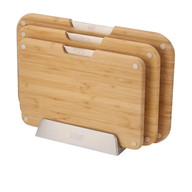








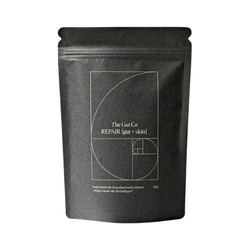

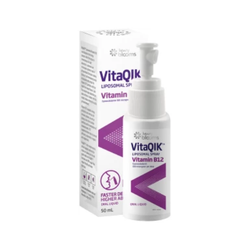

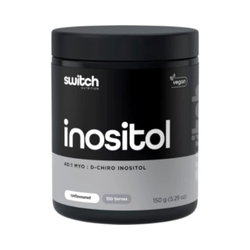
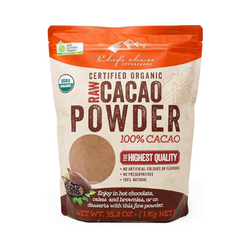

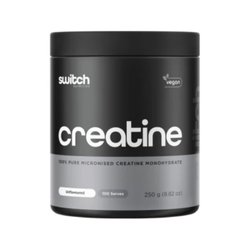





Hey girl just found your site looking up pinterest and this was so helpful. I swear I'm in perimenopuse but my GP says different, not even close. How can I be sure? Should I get a second opinion? Not sure if you answer these comments or not but thought i'd ask anyway. Saved this, so thanks again.